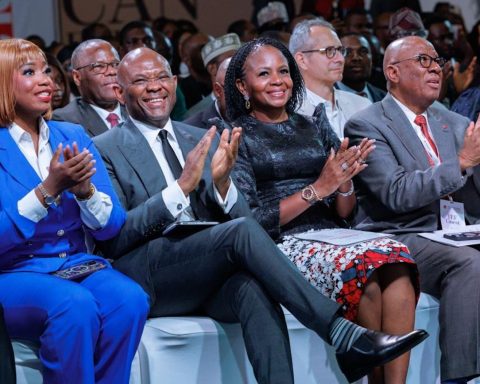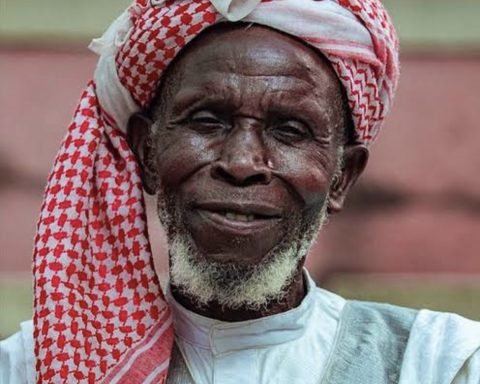The recent imposition of 14 per cent tariffs by the United States on Nigerian exports (excluding oil) has exposed the fragility of Nigeria’s trade-dependent economy and underscored the urgent need to strengthen domestic industrial capacity.
This protectionist move by the Donald Trump administration, part of the broader “Liberation Day Tariffs” policy, represents both a challenge and an opportunity for Nigeria to fundamentally restructure its economy away from over-reliance on crude oil exports.
Join our WhatsApp ChannelCurrent Trade Landscape Between Nigeria and the U.S.
Recent trade data reveal a dramatic shift in U.S.-Nigeria economic relations.
Official data from the US Census Bureau and the Bureau of Economic Analysis reveal what is best considered as a trade balance reversal. The data showed that Nigeria has transitioned from $596 million trade surplus with the U.S. in early 2024 to a $295 million deficit by May 2025—a complete reversal in just one year.
The data also show a significant decline in exports. Nigerian exports to the U.S. plummeted by $527 million (about 20 per cent ) year-on-year in the first five months of 2025, falling from $2.65 billion to $2.12 billion.
Despite the tariffs exempting crude oil, Nigeria’s oil exports to the U.S. still declined—from 20.4 million barrels ($1.52 billion) in early 2024 to 17.39 million barrels ($1.34 billion) in 2025—demonstrating vulnerability even in the protected sector.
In a historic shift, the U.S. became a net exporter of crude oil to Nigeria in February-March 2025 due to reduced U.S. refinery demand and increased Nigerian needs from the Dangote refinery.
Structural Weaknesses Exposed by U.S. Tariffs
The tariff policy has laid bare several critical weaknesses in Nigeria’s economic framework, such as over-dependence on crude oil exports, limited value addition to raw materials and manufacturing challenges.
Crude oil accounts for about 80 per cent of Nigeria’s total exports, making the economy extremely vulnerable to global price fluctuations and policy changes.
Nigeria exports raw materials, but imports finished goods. This, according to analysts, is a colonial-era pattern that persists today. Official data show that the country exported $670 million in cocoa beans, but only $27 million in chocolate in 2023.
Nigeria’s manufacturing sector, which contributed just 9.62 per cent to GDP in Q1 2025, struggles with infrastructure deficits, unreliable power supply, and regulatory inefficiencies that limit competitiveness.
READ ALSO:
- U.S. Tech Giants Walk A Tightrope Through Trump’s Tariffs
- Trump’s Tariffs, Golden Cards, And Cost Of Deregulation
- Global Trade Update: Trump’s Tariff Pause And Its Impact
Reliance on schemes like AGOA (African Growth and Opportunity Act) has not translated into structural competitiveness, with Nigeria’s utilization rates lagging behind peers like Kenya and Lesotho. With the introduction of trade tariffs, AGOA has effectively been terminated.
The Manufacturers Association of Nigeria (MAN) had lamented that the U.S. imposition of a 14 per cent tariff on imported products may have a significant impact on Nigeria’s trade and industrial landscape. “The imposition of a 14 percent tariff on Nigerian exports significantly undermines the competitiveness of locally manufactured goods in the U.S. market,” MAN DG, Mr Segun Ajayi-Kadir, had said.
Pathways to Industrial Strengthening and Diversification
Leveraging Regional and Alternative Markets
In the face of continued tariff crises and uncertainty, there have been calls for Nigeria to take proactive measures to boost non-oil exports and also explore alternative trading partners. The Lagos Chamber of Commerce and Industry (LCCI) called on the Nigerian government to review its international partnerships with a view to supporting non-oil exports to more favourable destinations to increase the country’s foreign earnings.
With U.S. market access becoming more challenging, LCCI said Nigeria must diversify its trade relationships by expanding trade opportunities within ECOWAS and the African Continental Free Trade Area (AfCFTA), while reducing over-dependence on Western markets. AfCFTA provides access to a $3.4 trillion market, which Nigeria could lead in harmonizing standards and reducing non-tariff barriers.
BRICS Engagement: While not yet a member, Nigeria’s trade with BRICS nations grew to ₦5.41 trillion in Q1 2025, showing potential as an alternative market. Given Trump’s threat to impose an additional 10 per cent tariff on BRICS member nations and partners, LCCI advised that Nigeria should “pursue a non-aligned, interest-driven foreign policy by positioning BRICS membership as a vehicle for economic cooperation and not political alignment.”
“We should also negotiate preferential trade terms within BRICS (especially with China, India, and Brazil) to offset losses from U.S. tariffs,” it added.
China Partnerships: There are also calls for Nigeria to negotiate long-term supply agreements for agricultural products like soybeans while attracting Chinese processing investments.
Developing Light Manufacturing and Agro-processing
LCCI also recommended that the government should pursue a national industrialisation policy to strengthen domestic production capacity by investing in manufacturing, agro-processing, and local value chains, and reduce the country’s over-reliance on oil exports (which may face decreased demand in the U.S. under the tariff regime).
It emphasised the need for the country to prioritize labor-intensive sectors that align with its resource base.
Nigeria First Policy
While describing the Nigeria First Policy launched recently, as “a timely, strategic response to the US tariff hikes and global trade tensions,” LCCI advised that to achieve a meaningful impact with the policy, the government must significantly boost its production capacity, which requires addressing critical factors affecting productivity, including high energy costs, inadequate energy supply, inefficient transportation, logistics and other infrastructure.
It also harped on the need to create access to affordable credit schemes for SMEs to scale operations.
Industry stakeholders have also highlighted the need for local value addition. Moving from raw agricultural exports (example, cocoa, sesame) to processed goods (chocolate, sesame oil), they said, could increase export earnings 20-30 fold based on current price differentials.
A Turning Point for Nigerian Industrial Policy
The U.S. tariffs represent a watershed moment for Nigeria’s economic strategy. As noted by an economist, Dr. Tope Fasoranti, this is not merely a trade challenge but “an opportunity—indeed, a necessity—for Nigeria to pivot decisively toward production-driven growth.”
In a piece titled “Trump’s New Tariff Regime and Nigeria’s Opportunity to Rewrite the Trade Script,” Dr Fasoranti said the ongoing trade tensions reflects the clash of economic giants, where smaller economies bear the unintended consequences of disputes they did not initiate. He, however, emphasised that “Nigeria can no longer afford to remain the grass trampled underfoot in such conflicts. He maintained that it is an opportunity for the country to reposition itself to be a “strategic actor capable of shaping outcomes in its favour”
”This requires shedding the posture of vulnerability and embracing a new economic diplomacy grounded in capability, coherence, and confidence. As global alliances realign and preferences erode, Nigeria must assert itself not on the margins but at the table,” He stated.
He also re-echoed the need for deeper commitment to building domestic industrial capacity.
By addressing infrastructure gaps, enhancing manufacturing capabilities, and strategically engaging regional and alternative markets, Nigeria can reduce its vulnerability to external shocks and build a more resilient, diversified economy.
The time for incremental approaches has passed—Nigeria needs bold, coordinated action across government and private sectors to transform this crisis into an industrial renaissance. The alternative—continued dependence on crude oil and raw material exports—will only deepen Nigeria’s exposure to global volatility and limit its developmental prospects in an increasingly protectionist world.
Victor Ezeja is a passionate journalist with seven years of experience writing on economy, politics and energy. He holds a Master's degree in Mass Communication.












